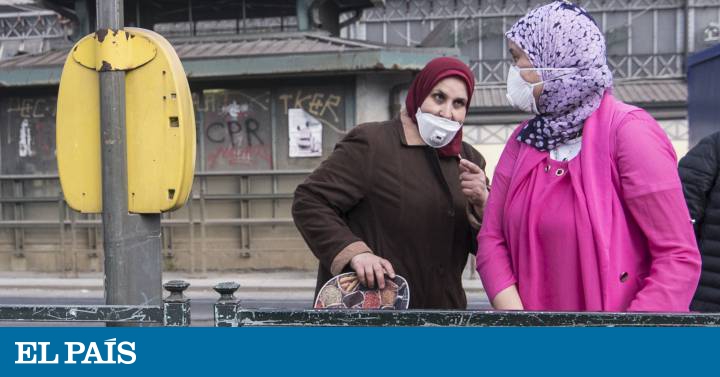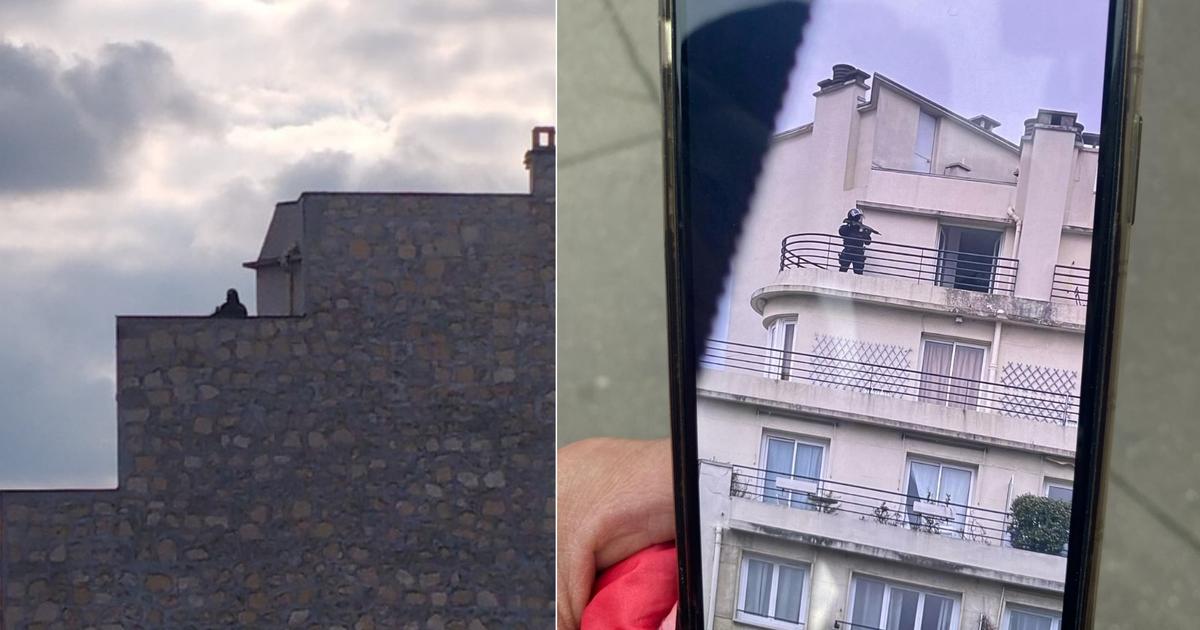Truth be told: my mother only left the house more than once a week. Every Saturday afternoon to load the shopping cart in a supermarket. Sometimes also on Sundays, but I would say that was one of his obligations: to accompany my father by car to the places where he decided to go. He also walked the street when there were specific things to do: visits to the doctor, renewal of papers, interviews at school. In reality there were not so many excuses to cross the threshold. For this reason, we took advantage of the exits, making detours, visiting shops or walking, simply walking outside with the “have to” pass.
Other women like my mother went out more than my mother: they went to the market, visited other women in their apartments without being anything like those in Delacroix's harem, and these immigrants would have liked to have something to do with the orientalist reflection , that his confinement was so exquisite and opulent. They escaped to their tiny damp and cold floors, taking refuge in the small and damp living rooms of their compatriots to cope with the double confinement (that of being women and newcomers) telling each other stories in great detail, with the deployment of their own resources. languages that are counted only in words. But even if they could have written, I can't imagine them venting into personal diaries, I think those noisy meetings saved them from utter despair. All were educated in seclusion, all were taught that the street belongs to men and the house is women's, but the application of the laws of confinement varied greatly from case to case. Also obedience and strategies to circumvent them.
So some of these women opened a small gap in the prison walls that they had been exposed to and began to widen it little by little, almost without noticing it: they signed up for language classes or started taking “a few hours” of cleaning here and there. But we are not going to deceive ourselves, there was no revolution in the generation of our mothers, as soon as we began to tear the laws of traditional morality that we were lucky. The education and culture that restricted the presence of women in public spaces to the bare minimum were not a lightweight fabric, they were a concrete wall, an ancient wall. "My mother's mother died and my father did not let me go to see her for the last time," an aunt told me in town and like her countless stories of the same type. How did our families transport that ancient wall to modern Europe? Some of us are trying to understand it at the same time that we work to bring it down.
Since the state of alarm began I cannot think of anything else: my mother and millions of women like her have been forced to stay at home for life because the house is their rightful place.
I tell you this and I do not know if I am very clear that you have the right to do so. Can I speak for my mother to tell about the injustices she has suffered throughout her life without asking her permission? I do not know, the only thing I know is that if I ask for permission, he will not give it to me because the law of silence that forbids him to report him, is part of his education in confinement, especially when it comes to telling "others", that it is not “us”, our way of life so that they can judge us and see their prejudices confirmed and deny us encouragement for being inferior in treating women in this way (which told them about double confinement: machismo and racism). If my mother told me something like that (she has known for a long time that I don't shut up and that's why she doesn't say anything anymore) I would answer her that the custom of locking women up is very old and although with different modulations it was also in force here until recently much and that even today we could detect some of their vestiges in certain structures that grip women despite the fact that they go out and do what they want, they are independent and they do not need any man to accompany them or maintain or much less validate that honor protects them (what will that be, by God?).
It may be difficult to explain to my mother that these “other” women freed from the domestic yoke ended up assuming other forms of domestication, of express submission before the vertigo of freedom. That for centuries they used uncomfortable ties like corsets and braces that for a brief moment burned at the stake but then returned in the form of restrictions on eating (something that my mother did not understand when I started to practice them myself to integrate) and exhausting sessions of exercise without purpose and that the old corset is now invisible and internalized as it gulps down the aesthetic models of minimized, erased, plasticized women.
That the invisible and built-in confinement of millions of free women translates into loading us with increasingly heavy tengosque : I have to be thin, I have to be beautiful, organized, skillful and always willing lover, helicopter mother, fun friend, the latest fashion and with the perfect manicure. As my mother is smart, she has already realized that the model I have embraced is not a panacea, but even so, even so, her perpetual confinement still hurts my soul and body. My western model is tremendously imperfect but there is room for emancipation. Sometimes tight and uncomfortable, sometimes exhausting, but that gap is pure life compared to leaving the house once a week or that your moment of relief from loneliness and tasks is to lean out the window to see people go by.
I keep wondering if I have the right to break her silence, to speak for her. I have already done it by embodying her in fictional characters that look like her but now that we are all living a life similar to hers, I get a deep cry that wants to denounce to the four winds the uncomfortable truth that continues to hurt me: my mother did not come out from home more than once a week, to make the purchase. And I lived like a party on Saturday afternoon because my helplessness was slightly alleviated by her permanent kidnapping. I don't know if I have the right to tell it, but not doing it makes me, in some way, an accomplice of its executioners: the one who strictly confined it, my father, and all those who educated it, who educated us, in that culture so that it seems to us something totally admissible that a mother, an adult person, could not walk the street without a safe-conduct and without being accompanied, although the one who guided the steps was a boy or a daughter like me who not long after would also be required to confinement .
I escaped as best I could and many women, mothers and daughters, went out when we felt like it. They could not stop that advance that we made by practicing the freedom that was denied us: going out for going out to maintain the right to do so, so that the open road does not close again on itself. Then new inventions would come so that, as happened here, we internalize restrictions by express submission: covering us would be one of those inventions, but I have already spoken of that at another time.
Since the state of alarm began I cannot think of anything else: my mother and millions of women like her have been forced to stay at home for life because the house is their rightful place. Yes, there is a lifetime confinement for them here and now. I do not know what you can do with this information, the least would be not to be indifferent. I don't know what I have to do with this wound: sharing it with you is an attempt to heal it.
Najat el Hachmi is a writer.
You can follow EL PAÍS Opinion on Facebook, Twitter or subscribe here to the Newsletter.








